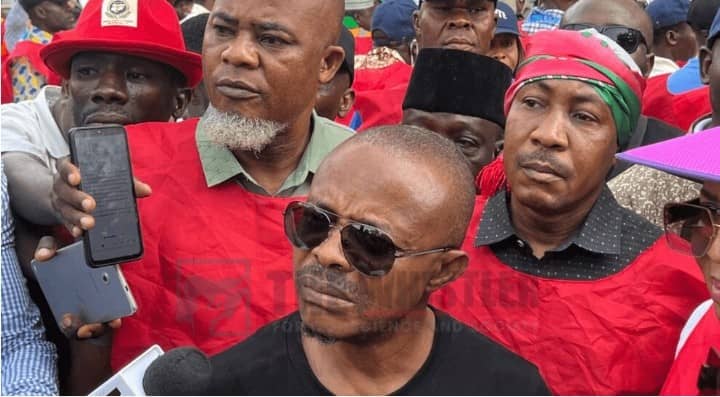Organized Labour has issued a stark warning, stating that the latest hike in petrol prices is pushing Nigerians to the brink. They cautioned the Federal Government about the possibility of public backlash due to the repeated increases in fuel costs, urging authorities to pay attention to the growing frustration across the country.
Labour leaders also highlighted the silence of many Nigerians, describing it as a possible precursor to unforeseen reactions. They noted that even “a goat can bite when pushed to the wall,” alluding to the potential for civil unrest if economic hardships continue to intensify.
An employer group, the Chemical and Non-Metallic Products Employers’ Federation (CANMPEF), echoed these sentiments, saying the price hikes—driven by subsidy removals—are impacting transportation, logistics, production costs, and household incomes, severely reducing purchasing power for many Nigerians.
This latest warning from Labour came as the Independent Petroleum Marketers Association of Nigeria (IPMAN) reported operational delays, saying its members must wait days to load petrol from Dangote Refinery in Lagos. Despite paying N40 billion upfront to the Nigerian National Petroleum Company Limited (NNPCL), IPMAN argued that allowing marketers direct access to the refinery would reduce petrol prices for Nigerians.
A labour leader who attended an October 16 meeting with Federal Government officials expressed frustration, noting that representatives led by the Secretary to the Government of the Federation were made aware of the widespread misery and restlessness across the country. “We had hoped the government would halt these price increases, but they continue to test Nigerians’ patience,” he said. “The latest hike is too much for many to bear. The government should not be surprised if Nigerians respond in unexpected ways.”
President of the Nigeria Labour Congress (NLC), Joe Ajaero, further emphasized the escalating economic hardship during an address at the 8th Quadrennial Delegates’ Conference of the National Association of Nigeria Nurses and Midwives in Abuja. He stated, “Today, key economic indicators are declining without relief in sight. Electricity tariffs have surged, petrol prices are out of reach for the average Nigerian, and transportation difficulties have caused unprecedented food shortages.”
Ajaero also stressed the need for unity to counter what he described as the forces of neo-liberalism, warning that the trade union movement may be the last line of defense for Nigerian workers and citizens alike. “Our choices are limited,” he said. “We either find a way to collectively resist the forces keeping us down or surrender to hopelessness.”
Labour leaders reiterated their demand for a review of workers’ salaries to keep up with the rising cost of living. They also called for the re-commissioning of Nigeria’s refineries in Port Harcourt, Warri, and Kaduna, in line with a previous agreement with the Federal Government.
Employers Call for Government Intervention
In a similar stance, CANMPEF emphasized that rising fuel prices and the naira’s depreciation have worsened the manufacturing sector’s crisis. Speaking at CANMPEF’s 45th Annual General Meeting in Lagos, the federation’s president, Mr. Devakumar Edwin, argued that “substantial investments in renewable energy and favorable government policies are needed to make the sector viable.”
Edwin called for strategic government interventions to bolster manufacturing, similar to Nigeria’s 2007 cement policy, which spurred local production by limiting imports. He suggested similar policies for agriculture, petrochemicals, electronics, and other critical sectors to position Nigeria for industrial growth.
He further urged the government to declare a “state of emergency” in manufacturing, implement tax reliefs, and provide subsidies on key inputs to create jobs and stimulate economic growth.
IPMAN: Allow Direct Access to Dangote Refinery
Meanwhile, IPMAN president Abubakar Garima called on Dangote Refinery to allow independent petrol marketers direct access to its products to help reduce pump prices. During an interview on Channels Television, Garima noted that while his association has paid NNPCL ₦40 billion in upfront fees, members are facing days-long delays to load from the refinery. Garima emphasized that allowing direct access could alleviate some of the challenges marketers face and potentially reduce fuel costs for the public.
IPMAN’s push for direct sourcing comes after Dangote’s recent remarks, where he said that many marketers are bypassing his facility in favor of imported petrol. Garima, however, countered that IPMAN is not importing fuel and urged Dangote to reassess the refinery’s pricing structure.
